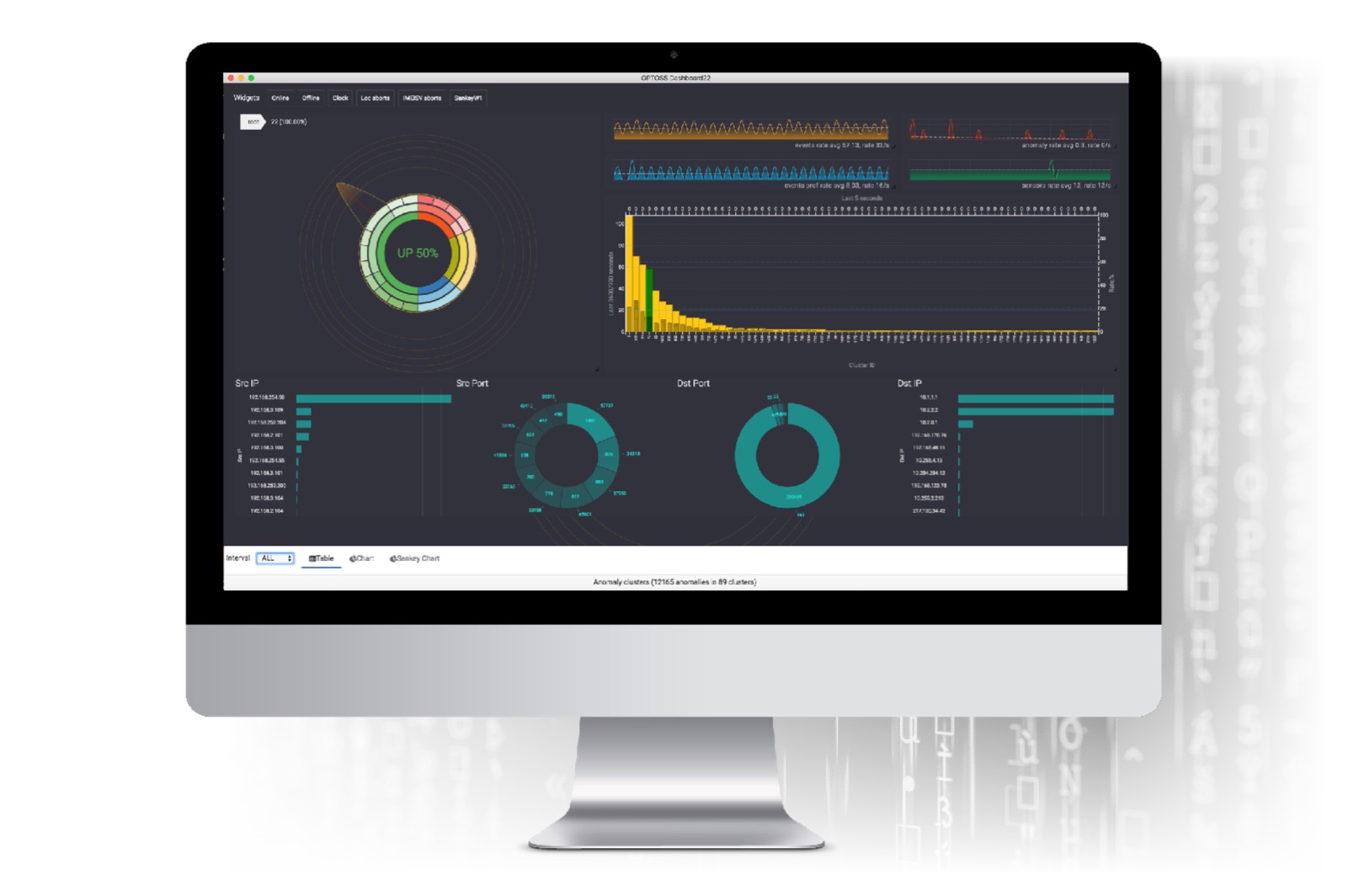
OptOSS AI unlocks superhuman abilities
OptOSS AI is an AIOps platform powered by Artificial Intelligence and is used for monitoring, analysing, and managing critical networks in real time.

OptOSS AI is an AIOps platform powered by Artificial Intelligence and is used for monitoring, analysing, and managing critical networks in real time.
OptOSS AI connects to all routers, retrieves the most current network topology, & creates a list of all networks to be audited. Then it collects all hardware + software configurations/parameters from every discovered/supported element, automatically monitoring all additions & deletions of devices, components & their respective network links. It creates precise audit reports & maps, presenting the most complete information about the managed network's current inventory, topology, IP address space map, & analysis of Syslog events & SNMP alarms.
As data is streamed in, OptOSS AI autonomously detects anomalies. Both structured and unstructured time-series data can be streamed in, and significant patterns are detected within 3s of the data being received. The base dashboard interface provides a graphical 360° overview of Network Activity & Performance.
A patented process is leveraged to detect, cluster, label and comfortably manage millions of known and unknown irregularities that crop up on critical infrastructures. Cross-correlation provides deeper insights into complex anomalies that may be distributed across multiple devices and applications.
OptOSS AI presents the Operator with a full context-rich narrative for each anomaly cluster, enabling them to further educate the system on the significance of the presented clusters. This virtuous cycle of education fits seamlessly into the Operator’s day-to-day activities.
As the Operator spends more time working with the system they are not only granted the ability to get a full overview of the network, but they are empowered to intelligently automate away the mundane and repetitive tasks and re-orient themselves towards more pro-active duties such as diagnosing new anomalous incidents.

OptOSS AI connects to the network elements via SSH/Telnet console connections and works as a human operator. First, it connects to all routers and retrieves most current network topology and creates a list of all networks to be audited. Then it collects all hardware and software parameters from every discovered and supported element and automatically monitors all additions and deletions of the devices, components and network links between them.

OptOSS AI creates precise audit reports and maps, and quickly & efficiently collects the most complete information about the managed network's inventory, topology, map of IP address space. Whenever network elements are configured or new devices added, infrastructure update cycles are triggered automatically. The element inventory data is retrieved by OptOSS AI automatically, as soon as it receives notification that infrastructure has changed. OptOSS AI would initiate the network audit cycle and will rediscover the entire ICT domain under monitoring.

All network devices can be configured to send syslog and SNMP messages to the OptOSS AI platform via UDP or TCP network protocols. OptOSS AI receives, processes and profiles the streaming telemetry in near real-time. By understanding the topology of the network and continuously monitoring activity, users can use OptOSS AI to easily find redundant devices, identify devices for decommissioning, misconfigurations and more.
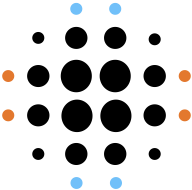
Data Parsers allows OptOSS AI to segment the incoming unstructured data into meaningful information. Logs can come in many forms, and our data parsers are a “plug-in” type solution which allow OptOSS AI to ingest any unstructured time-series data you have. Many formats are supported out of the box such as Apache, Syslog, SNMP, and in case you have specialised unique log-formats, new data-parsers can be quickly rolled out to enable further analytics.

Knowledge Packs (KPs) plug into OptOSS AI, which allow the platform to understand the specific-data stream in question. Every family of network components such as the HP Proliant server family, have their own “language” consisting of a dictionary of words and messages that it uses to relay information. In a similar way as a dictionary allows people to understand new languages, our knowledge packs allow OptOSS AI to understand the language of individual network components. This modular, vendor-agnostic approach allows OptOSS AI to understand a network in a similar way a human operator would.

OptOSS AI can ingest multiple data streams originating from the same assets. Performance Indicators, Fault data, Syslogs, and more can be collected in parallel and attributed to specific devices/network components. In future stuages, this architecture allows OptOSS AI to cross-correlate across data-streams/devices, investigate causal relationships and derive complex findings. Accordingly, your teams can uncover hidden patterns which are impacting your networks.
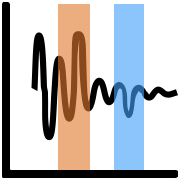
OptOSS AI uses a patented process rooted in quantum theory to detect anomalous behaviour in your networks in any time-series data. Over 25 dimensions are taken into account when determining anomalous behaviour. Anomalies are detected and recognised within 2 seconds of the data being ingested and no model-training or training data-sets are required.
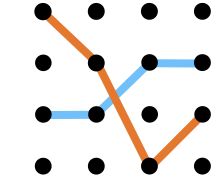
OptOSS AI detects temporal and causal patterns within your data. OptOSS AI intelligently correlates across all levels of the data-chain to help operators determine the root cause of any anomalous activity. Trace back a failure in your service level to the user’s triggering request and all the network elements which were involved in the process.

Our alarm clusterer groups anomaly instances according to impact models & subject matter-expertise within 3 seconds of the data being ingested. Insights on recurring anomalous behaviours allow the user to make informed decisions. This feature serves as the basis for OptOSS AI automation capabilities, and enables intelligent scripts to be launched in-case clusters ever re-appear.

With OptOSS AI, users can automate reactions to low-risk and medium-risk recurring occurrences. Each anomaly cluster can be assigned automated action-scripts which would be automatically triggered in case the anomaly cluster ever reappears. This is an intelligent solution which allows our customers to “prescribe” automated reactions to behaviours which are unique to their networks.

In addition to automating reactions, users can also automate detailed data-mining scripts which can automatically collect and enrich anomalous patterns with contextual information which can help to massively reduce the MTTR by spotting impossible. For each anomaly cluster, users can define custom data mining scripts which can collect information about - for example - the affected users, impacted areas, and even automatically generate comprehensive reports and advice on mitigation steps.

Using the RPA tools and the Data Mining functionalities, users can massively speed up the Mean Time to Resolution (MTTR) for any network incidents. Automatic troubleshooting can account for the frequently occuring known issues. Rich contextual data provides your experts with all of the information they need to rapidly classify new unknown patterns, determine the root-causes, and assign some scripts that can rectify the issues autonomously in the future.


After initial discovery and integration, OptOSS AI becomes an intelligent autonomous and dynamic system which helps operators with their daily operational routines. The base dashboard interface provides operators with a graphical 360° overview of Network Activity & Performance.

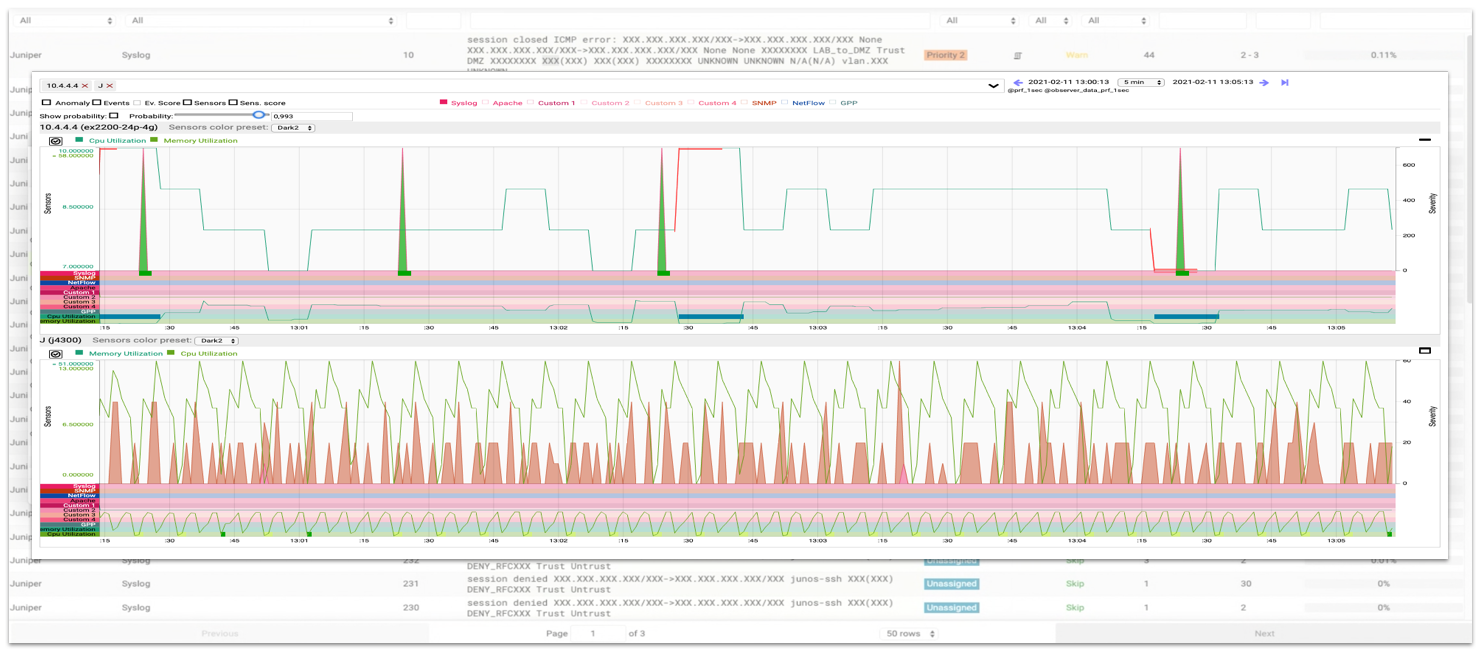
When incidents are detected and brought to the Operator’s attention, the point-and-click interface on the Streaming Alarm view provides Operators with the ability to zoom in on the full context of any anomalous activity, and allows for rapid root-cause analysis & remediation when necessary. OptOSS AI learns from this process, and allows for the correct remediation or alerting procedures to be enacted automatically next time. This frees up the Operators to focus on new incidents if and when they appear.


The interactive CT-Scan visualisation intuitively illustrates the extent of different types of detected anomalous activity across a network over time with color-codes highlighting levels of severity- clearly visualising and communicating any hidden patterns to the operators. This cuts through the truly chaotic world of a large network, capturing the activity of millions of actors (both good & malicious), depicting small incidents, scheduled activities, large outages and even subtle hacking attempts. Invisible stochastic noise can become a powerful symphony of insightful findings thanks to the capabilities of OptOSS AI.
OptOSS AI supports your Ops teams and helps them achieve operational excellence. Save massive costs by avoiding disruptions, empower your Operators with intelligent insights, and automate away the mundane & repetitive tasks.
OptOSS AI helps teams get to the bottom of complex incidents and outages faster and with more context. Recognize known anomalies and uncover unknown anomalies across your network, and reduce incident MTTR by orders of magnitude. Enhance operational efficiency by turbo-boosting your incident detection and remediation capacities, maintain the continuity of your services, and maximise the end-user experience on your network.
Detect known anomalies, as well as uncovering new and unknown patterns of anomalous activity across your network. Reduce alert fatigue, and allow operators to focus on what's important.
Automate alerting and escalation procedures for any known and repeating incidents. Trigger real-time corrective deep-dive analyses that would typically only happen after customers start complaining, and avoid unnecessary disruptions altogether.
Do you already have something specific in mind, or would you like to benchmark OptOSS AI against your own internal tooling? Don't hesitate to reach out and find out how we can help you integrate AIOps and deliver operational excellence!